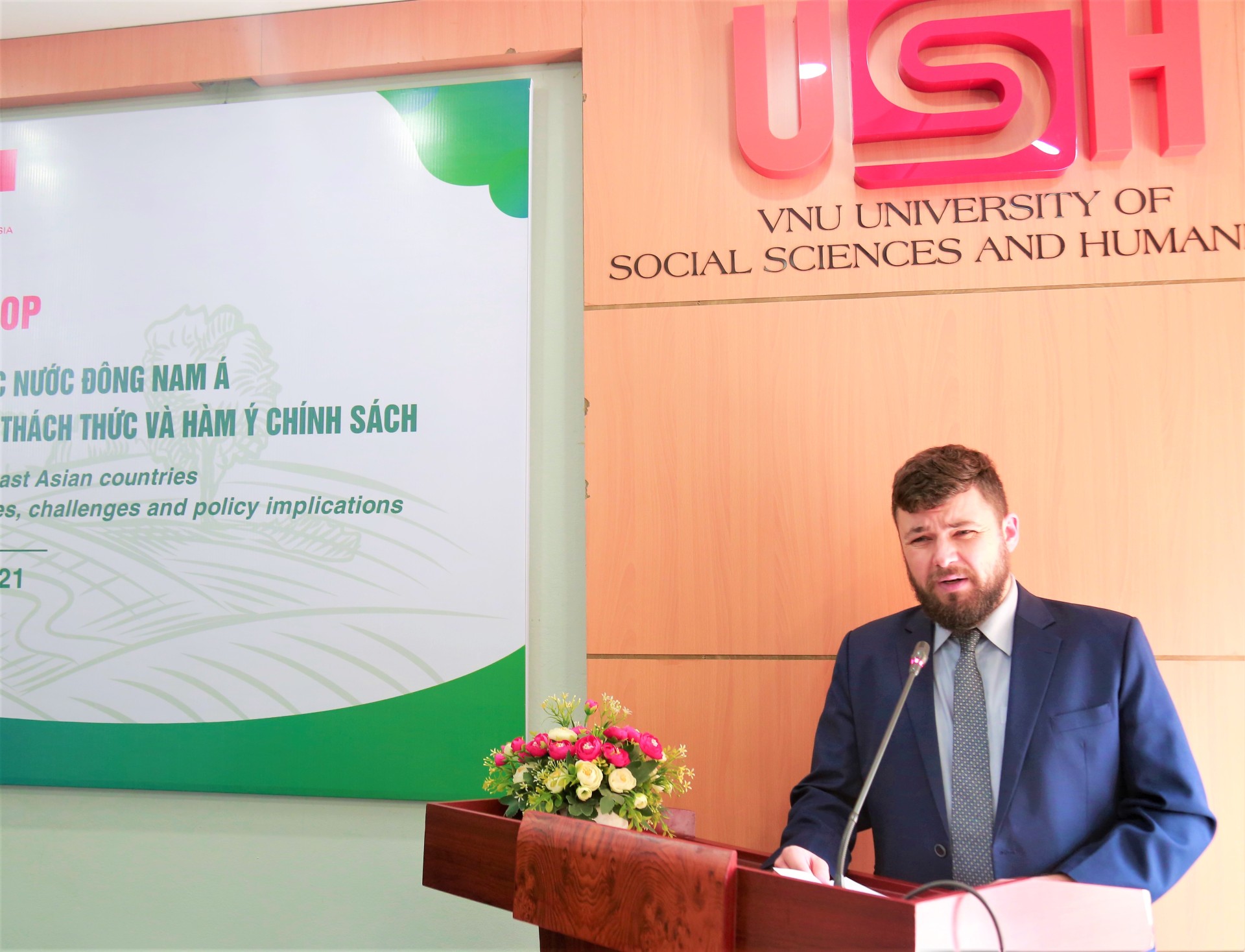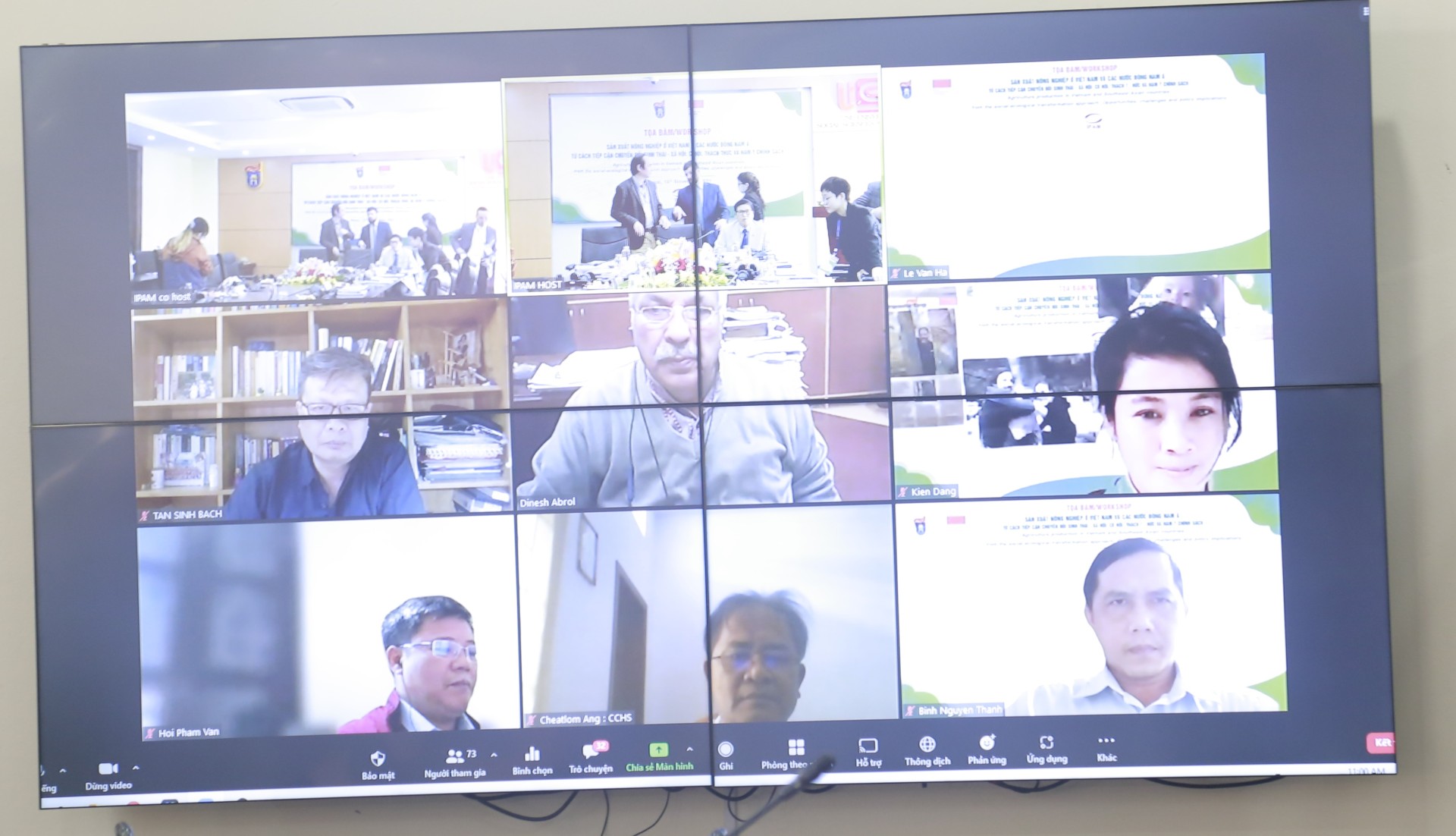The seminar is part of a series of activities under the collaborative project “Towards a new framework for agricultural development through a Socio-Ecological Transformation (SET) approach in science and policy-making processes (Case study in Vietnam)” between the Institute for Policy and Management (IPAM) and the Rosa Luxemburg Foundation Southeast Asia.
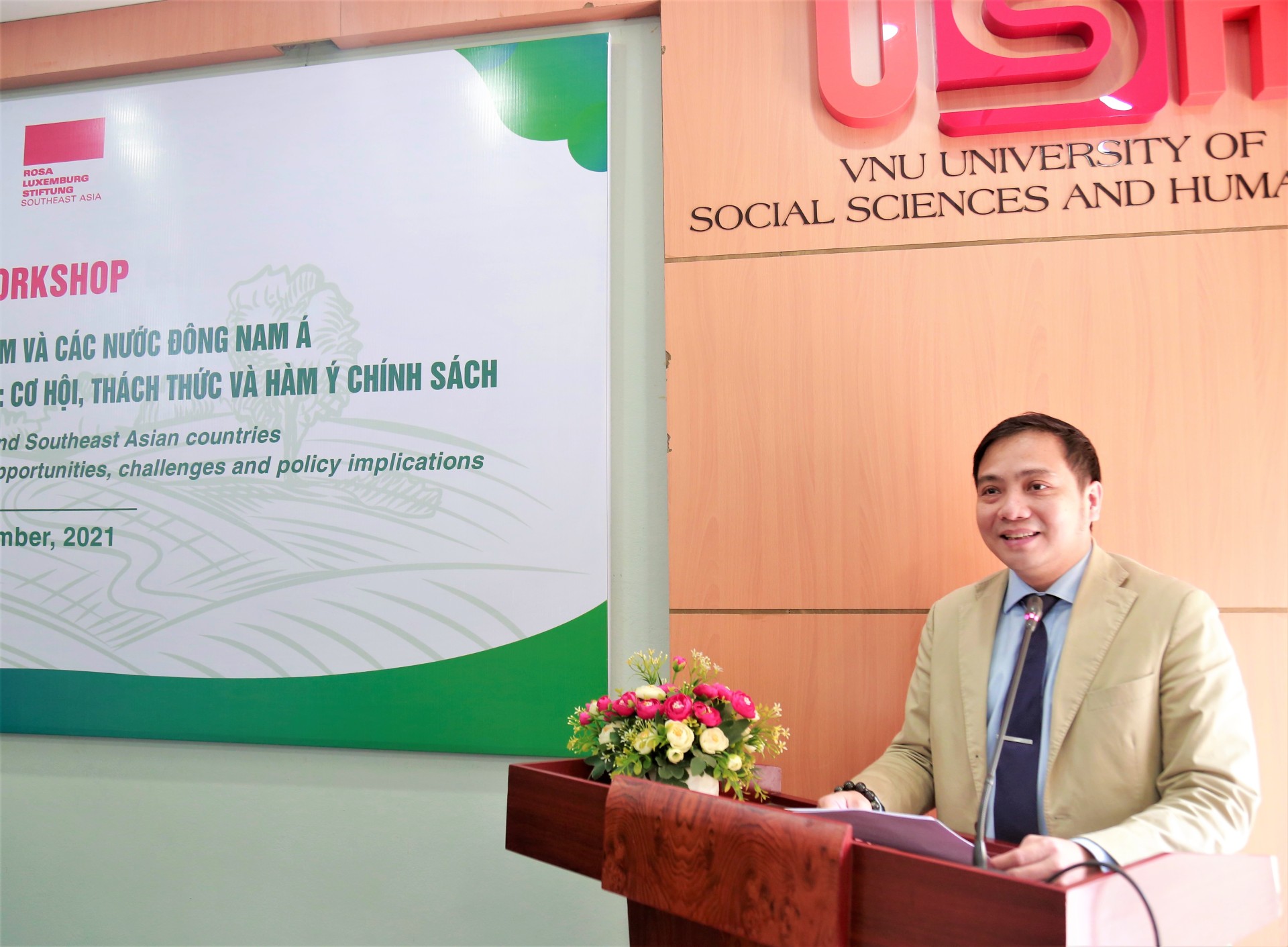 Assoc. Prof. Dr. Dao Thanh Truong (Vice Rector of the University of Social Sciences and Humanities) delivered the opening remarks at the seminar.
Assoc. Prof. Dr. Dao Thanh Truong (Vice Rector of the University of Social Sciences and Humanities) delivered the opening remarks at the seminar.
In his opening remarks, Assoc. Prof. Dr. Dao Thanh Truong (Vice Rector of the University of Social Sciences and Humanities) shared that the collaborative project between the University and the Rosa Luxemburg Foundation in Southeast Asia aims to build a network among scientists, policymakers, and other stakeholders interested in the operation and management of agricultural production in Vietnam in particular, and the application of SET in research and policy planning in practice. This is one of the results of the University's Institute of Policy and Management's long-standing cooperation with the Rosa Luxemburg Foundation for over 20 years, aimed at promoting policy research activities on socio-economic development and transformation in Vietnam in particular and in Southeast Asia in general, in various contexts.
The Vice Rector of the University hoped that at the seminar, the audience and experts would have the opportunity to exchange research results on the opportunities, challenges, and policy implications in agricultural production and food systems in Vietnam and Southeast Asian countries in the context of climate change and the Covid-19 pandemic. Through this, they could develop development models capable of adapting to new social changes.
Mr. Phillips Degenhardt speaks on behalf of the Rosa Luxembourg Foundation Southeast Asia.
Mr. Phillips Degenhardt (Regional Director, Rosa Luxembourg Southeast Asia Foundation - Hanoi Office) emphasized that the world is currently grappling with the negative impacts of the Covid-19 pandemic and climate change on agriculture and food. In both developed and developing countries, producers and farmers face significant pressure regarding crop varieties and supply chains due to land degradation and water scarcity. The overwhelming power of corporations further exacerbates this situation. This necessitates new policies and solutions in agriculture to limit the monopolies of corporations, overcome the financial constraints of the global food production system, and ultimately benefit workers and farmers.
Delegates participated online via Zoom software.
With that in mind, this seminar is expected to contribute practical ideas and exchanges to develop policy proposals on sustainable agricultural production development in Vietnam. The seminar, as well as the project, is one of the activities that the Rosa Luxembourg Foundation is undertaking with partners in the field of policy consulting, serving the goal of socio-ecological transformation in Vietnam and Southeast Asia.
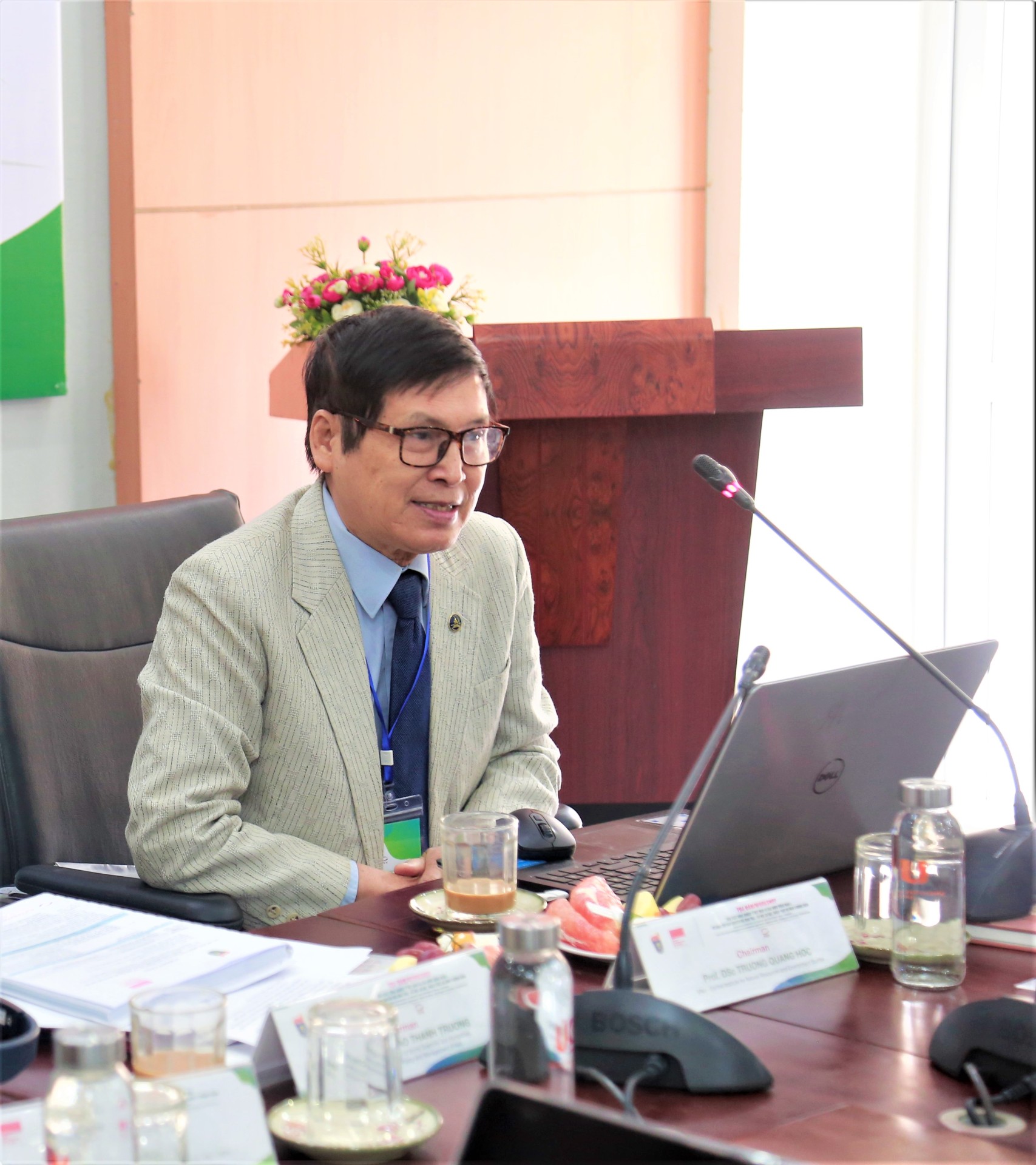 Assoc. Prof. Dr. Truong Quang Hoc (Institute of Resources and Environment, Vietnam National University, Hanoi) presented the introductory report.
Assoc. Prof. Dr. Truong Quang Hoc (Institute of Resources and Environment, Vietnam National University, Hanoi) presented the introductory report.Following the opening session, the seminar began with a keynote presentation by Assoc. Prof. Dr. Truong Quang Hoc (Institute of Resources and Environment, Vietnam National University, Hanoi) entitled "Nature-Based Solutions for Agricultural Transformation in the Context of Global Change". The presentation highlighted the negative aspects of modern intensive farming methods that heavily utilize chemical fertilizers and pesticides. These methods cause environmental pollution, soil degradation, threaten human health, and reduce biodiversity. The author proposed a new approach to agriculture based on the principles of natural ecosystems (harmonious with nature), minimizing the use of chemicals and promoting the use of organic fertilizers for intensive farming.
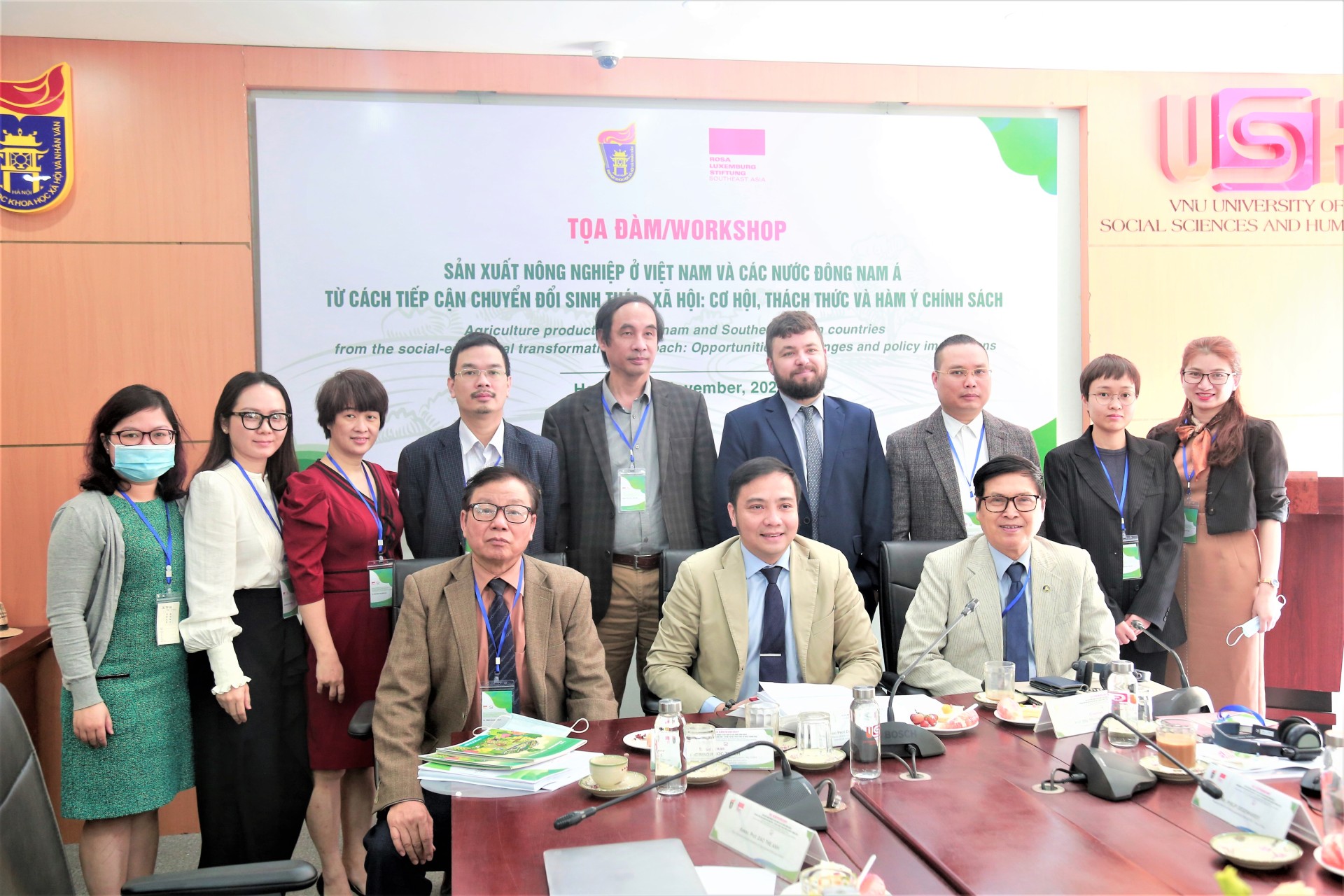 The delegates took a commemorative photo.
The delegates took a commemorative photo.Following the introductory report, the seminar continued with two sessions and eleven presentations.
At the end of the day's session, the organizing committee received 15 comments and discussions from scientists and experts on agricultural production, ranging from socio-ecological transformation approaches, food systems, and issues of food security and food sovereignty—from theory to policy and practice. The seminar also welcomed the participation of over 150 scholars, experts, and researchers from both within and outside the country, who attended online via the Zoom platform.

